|
This Transactions
is in the realm of computational science in parallel and
distributed environments, also encompassing the underlying
theoretical foundations and the applications of large-scale
computation. The Transactions on Computational Science
offers practitioners and researchers the possibility to
share computational techniques and solutions in this area,
to identify new issues, and to shape future directions for
research, as well as to enable industrial users to apply
leading-edge large-scale high-performance computational
methods.
J.UCS - The
Journal of Universal Computer Science - is a high-quality
electronic publication that deals with all aspects of
computer science. J.UCS has been appearing monthly since
1995 and is thus one of the oldest electronic journals with
uninterrupted publication since its foundation. Indexing
and Citation: DBLP Computer Science Bibliography Server,
ISI Web of Knowledge, ISI Web of Knowledge - Impact factor
Trend Graph, Impact Factor
Neural Computing &
Applications is an international journal which publishes
original research and other information in the field of
practical applications of neural computing and related
techniques such as genetic algorithms, fuzzy logic and neuro-fuzzy
systems. Abstracted in: Current Contents® /
Engineering Computing & Technology®, CompuMath Citation
Index® and ISI's Sciences Citation Index Expanded®
Neurocomputing
welcomes theoretical contributions aimed at winning further
understanding of neural networks and learning systems,
including, but not restricted to, architectures, learning
methods, analysis of network dynamics, theories of learning,
self-organization, biological neural network modelling,
sensorimotor transformations and interdisciplinary topics
with artificial intelligence, artificial life, cognitive
science, computational learning theory, fuzzy logic, genetic
algorithms, information theory, machine learning,
neurobiology and pattern recognition. Abstracting: AI
Robotics Abstracts, Abstracts in Human-Computer Interaction,
Cambridge Scientific Abstracts, CompuScience, Computer
Abstracts, Computer Literature Index, Current Contents/CompuMath,
Current Contents/Engineering, Computing & Technology, EMBASE,
Engineering Index, INSPEC Information Services, Mathematical
Reviews, Neuroscience Citation Index, PsycINFO Psychological
Abstracts, Research Alert, SCISEARCH, Scopus, Zentralblatt
MATH
JIFS will publish original articles on current and potential applications, case studies, and education in intelligent systems, fuzzy systems, and web-based systems for engineering and other technical fields in science and technology. The journal focuses on the disciplines of computer science, electrical engineering, manufacturing engineering, industrial engineering, chemical engineering, mechanical engineering, civil engineering, engineering management, bioengineering, and biomedical engineering. The scope of the journal also includes developing technologies in mathematics, operations research, technology management, the hard and soft sciences, and technical, social and environmental issues. Abstracted in: CPX, Cambridge Scientific Abstracts, Current Contents/Engineering, Computing and Technology, EBSCO database, Inspec, Journal Citation Reports/Science Edition, SCOPUS, Science Citation Index-Expanded (SciSearch®), Zentralblatt MATH
IJAC is the first academic research journal on Autonomic Computing that serves as a forum for individuals in the field to publish their research results as well as for interested readers to acquire latest development information in the field. IJAC is a high-quality double-blind refereed journal. As a research and engineering journal, IJAC, will facilitate communication and networking among Autonomic Computing researchers and engineers in a period where considerable changes are taking place in Autonomic Computing technologies innovation, and will stimulate production of high-quality Autonomic Computing solutions and architectures.
JIAS is a peer
reviewed international journal with a key objective to
provide the academic and industrial community a medium for
presenting original research and applications related to
information assurance and security. JIAS invites authors to
submit their original and unpublished work that communicates
current research on information assurance and security
regarding both the theoretical and methodological aspects,
as well as various applications in solving real world
information security problems. Articles are abstracted in:
Computer Abstracts; Computer & Control Abstracts; Computer
Information System Abstracts; Computer Literature Index;
Computer Review; Ergonomics Abstracts; Abstract Journal;
USSR Academy of Sciences; Zentrablat fÜr Mathematik/Mathematics,
Abstracts; Mathematical Reviews; Current Mathematical
Publications; MathSci.
The International Journal of Hybrid Intelligent Systems (IJHIS) is a peer refereed journal on the theory and applications of hybrid and integrated intelligent systems. The key objective of IJHIS is to provide the academic community with a medium for presenting original research and applications related to the simultaneous use of two or more intelligent techniques. Rather than publishing papers in one particular area of expertise, the journal aims to be the main forum for publishing papers that involve the use of two or more intelligent techniques and approaches, such as neural networks, traditional knowledge-based methods, fuzzy techniques, genetic algorithms, agent-based techniques, case based reasoning, etc. The combination or integration of more distinct methodologies can be done in any form, either by a modular integration of two or more intelligent methodologies, which maintains the identity of each methodology, or by fusing one methodology into another, or by transforming the knowledge representation in one methodology into another form of representation, characteristic to another methodology.
The major goal of
IJBIC is the publication of new research results on
bio-inspired computation methods and their applications.
IJBIC provides the scientific community and industry with a
vehicle whereby ideas using two or more conventional and
computational intelligence based techniques can be
discussed. Bio-inspired computation is an umbrella term for
different computational approaches that are based on
principles or models of biological systems. This class of
methods, such as evolutionary algorithms, ant colony
optimisation, and swarm intelligence, complements
traditional techniques in the sense that the former can be
applied to large-scale applications where little is known
about the underlying problem and where the latter approaches
encounter difficulties. Therefore, bio-inspired methods are
becoming increasingly important in the face of the
complexity of today's demanding applications, and
accordingly they have been successfully used in various
fields ranging from computer engineering and mechanical
engineering to chemical engineering and molecular biology.
IJBIC is especially intended for furthering the overall
understanding of new algorithms simulated with various
bio-phenomena beyond the current focus, i.e. genetic
algorithms, Tabu search, etc. Its objective is improvement
in theory and applications of the bio-computation field.
Algorithms should therefore be carefully designed and
appropriately analysed, and authors are encouraged to assess
the statistical validity of their results whenever possible.
International Journal on Autonomous and Adaptive Communications Systems(IJAACS)
The International Journal of Cognitive Informatics and Natural Intelligence (IJCINI) encourages submissions that transcends disciplinary boundaries, and is devoted to rapid publication of high quality papers. The themes of IJCINI are natural intelligence, autonomic computing, and neuroinformatics. IJCINI is expected to provide the first forum and platform in the world for researchers, practitioners, and graduate students to investigate cognitive mechanisms and processes of human information processing, and to stimulate the transdisciplinary effort on cognitive informatics and natural intelligent research and engineering applications.
Contact editor: Ajith Abraham; email: ajith.abraham@ieee.org
back to
NaBIC 2009
Web page |
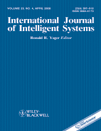 International Journal of Intelligent Systems, John Wiley &
Sons, USA
International Journal of Intelligent Systems, John Wiley &
Sons, USA LNCS Transactions on Computational Science
LNCS Transactions on Computational Science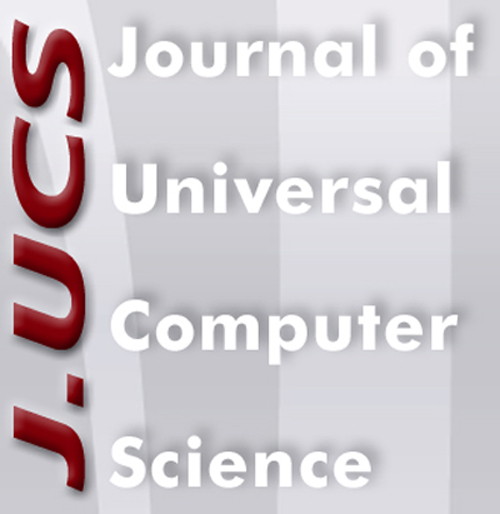 The Journal of Universal Computer Science, Austria
The Journal of Universal Computer Science, Austria Neural Computing & Applications, Springer Verlag, London
Neural Computing & Applications, Springer Verlag, London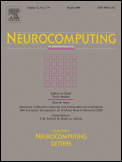 Neurocomputing, Eelsevier Science, The Netherlands
Neurocomputing, Eelsevier Science, The Netherlands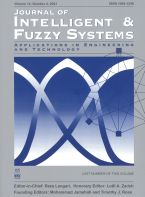 Journal of Intelligent and
Fuzzy Systems (JIFS), IOS Press, The Netherlands
Journal of Intelligent and
Fuzzy Systems (JIFS), IOS Press, The Netherlands Neural Network World, Academy of Science, Czech Republic.
Neural Network World, Academy of Science, Czech Republic. International Journal of Autonomic Computing, Inderscience
Publishers, UK
International Journal of Autonomic Computing, Inderscience
Publishers, UK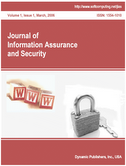 Journal of Information Assurance and Security, USA
Journal of Information Assurance and Security, USA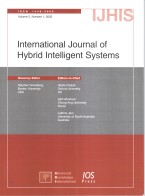 International Journal of Hybrid Intelligent Systems, IOS
Press, The Netherlands
International Journal of Hybrid Intelligent Systems, IOS
Press, The Netherlands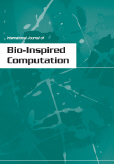 International Journal of Bio-Inspired Computation (IJBIC),
Inderscience Publishers, UK
International Journal of Bio-Inspired Computation (IJBIC),
Inderscience Publishers, UK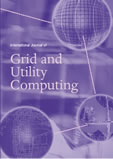 International Journal of Grid and Utility Computing (IJGUC),
Inderscience Publishers, UK
International Journal of Grid and Utility Computing (IJGUC),
Inderscience Publishers, UK The International Journal of Cognitive Informatics and
Natural Intelligence (IJCINI), IGI Global, USA
The International Journal of Cognitive Informatics and
Natural Intelligence (IJCINI), IGI Global, USA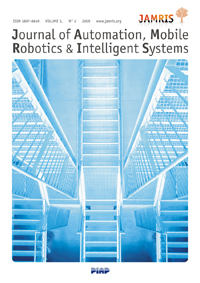 Journal
of Automation, Mobile Robotics and Intelligent Systems,
Poland
Journal
of Automation, Mobile Robotics and Intelligent Systems,
Poland